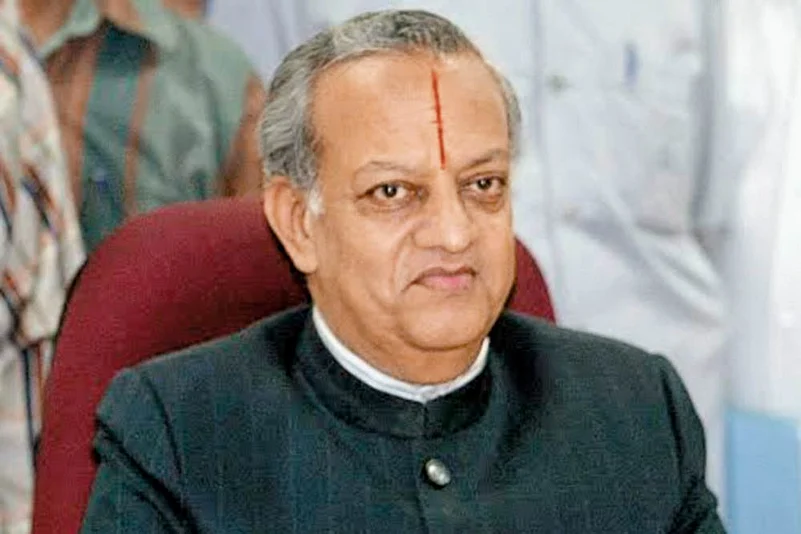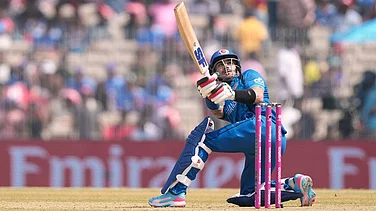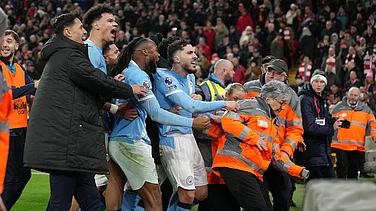Ex-Chief Election Commissioner N. Gopalaswami, 75, conducted the first BCCI election after the Lodha reforms, as well as that of the newly formed Indian Cricketers’ Association. He spoke to Qaiser Mohammad Ali in an exclusive interview. Excerpts:
How different was the BCCI election to the other elections that you have conducted as Chief Election Commissioner of India?
It was vastly different, in the sense that I was in-charge of only the BCCI elections and not the state cricket associations’ elections. There is a vast different between conducting elections in which you are in-charge of all the states, or the entire country. I could not inquire into any matter pertaining to any state association, if there was a mistake. If there was any complaint about something not being properly done, I had no role to play. To that extent it was not a very happy situation because ultimately states [associations’] elections are the feeder to the BCCI. So, once their representatives came, I held an interaction between them and if there was any lacuna there, it would get reflected in the final outcome. So, to the extent that the responsibility is different, separate, and I had nothing to do with the state elections; only with the BCCI elections.
How was your experience?
The point is that things could have been quite better, in terms of my ability to attend to complaints from various state associations if that [state elections] was also my responsibility. The point is this: the separation between the two – one person conducting the election of the BCCI while the feeder cadre of it, which is the mechanism of the states, being done by somebody else, who had nothing to do with you [BCCI Electoral Officer]. Thus, it made it difficult to intervene if there were issues. To that extent, one cannot say it was the happiest of situations. Regarding the Indian Cricketers’ Association (ICA), initially we were not very sure that we will be able to do its elections at such a short notice.
Who was not sure about ICA elections in time [before the BCCI elections on October 23]?
Me, as I was also in-charge of the ICA elections. So, in respect of that we said that looking at the vast numbers likely [of retired male and female first-class players], and the fact that it had not been attended before. Since many people would apply [for ICA membership] and they may not have their [playing] record, and may take the time to find them, we thought a little more time would be appropriate, otherwise it may not really be possible to do it in a short time. But the Committee of Administrators (CoA) had a different argument, which was quite valid. They felt that instead of going into November we should complete it in good time so that two ICA representatives to the BCCI [Apex Council] can be selected and can attend the first meeting of the newly constituted BCCI. That meant that instead of going up to November for these elections we had to do this election much faster, do it by October 10 or 12, so that the newly elected office-bearers of the ICA can meet once and select their representatives to the BCCI. So, we hurried things. Although I can say that it was a well conducted online election, the point is that 1,208 players could register because the time was very short. Almost 80 per cent of them voted, which meant that the message had gone home that a new set-up is being created for [retired] players and that they should take charge of their own affairs. So that’s the reason why the enthusiasm and participation was very high -- almost 80 to 85 per cent participation voted out of 1,208 registered players. Personally, I feel that another 500-600 people couldn’t register. Time was short and they couldn’t find their records. Suppose you played so many Ranji Trophy matches you needed to provide some proof; you just couldn’t make a claim. The membership is now open and the ICA will take care of registering members who have been left out. To that extent, the hurrying up had a negative side. But the positive outcome is overwhelming. It was not very satisfactory, but I think by and large the thing that needs to be done further is that the Lodha Committee reforms must be carried on in their spirit, right to the states and below [district level], something that the new body will look into.
You mentioned ‘issues’ and also said that some ‘issues’ were outside your jurisdiction. That is now clear. But there were other issues, for instance, with Tamil Nadu, Maharashtra, Haryana etc.
Tamil Nadu and Haryana were different; they were not compliant at all. I am talking about those who were compliant, where the elections were held, and where there were complaints. For instance, in one state there was remark that the person who was nominated was not in India at that time, so how he could sign on the nomination paper. I didn’t go into details of it because it didn’t concern me. I couldn’t have done anything at all because I couldn’t have inquired. There were complaints from some other places regarding one person-one post rule. The understanding is that you contest for one post. For instance, Gopalaswami fights the election for the post of president, vice-president, secretary, joint secretary, and treasurer. It is ridiculous. The returning officer [of that states/s] should have simply said ‘no, you can file it only for one post’. While it is true, it only indicates a person’s manoeuvring. I file for five posts and then I see who are the others who are filing, then I strike a deal with others, and then I withdraw from the other four posts. It’s a misuse. The returning office in that case should have been very clear, and said that he would not let him contest for more than one post. In some other places, conflict of interest issues were there. And then in Manipur it was quite strange. The returning officer who must have handled elections before he came to a conclusion that an MLA was not a public servant. Since that person came to the BCCI [for the general body meeting] I had the jurisdiction. I pointed out the various Supreme Court and High Court decisions, and said that it was not a correct decision.
You are talking about states...
Yes, I am talking about the states. While the states’ elections were going on, people complained to me...yahan aisa, wahan waisa hai [things are wrong here and there]. But I could only look at them but could not do anything at all.
You couldn’t attend to them because they were not in your jurisdiction.
Why attend...I couldn’t do anything. I am not necessarily saying that what was sent to me was true. But such complaints were being received and you could only look at them, that’s all.
Your jurisdiction started from the time the states sent the names of their representatives for the BCCI general body meeting held on October 23, isn’t it?
My jurisdiction was very much there, because they had to be fully compliant with the BCCI’s rules, what were the qualifications and disqualifications. Whatever conditions were there I had to fulfil those.
Did you do this checking and cross-checking of the states’ representatives on your own or with the CoA?
It was entirely my jurisdiction. After the states nominated and the names came, I prepared a preliminary list of those who were nominated, and that was put out [on BCCI website]. Then, objections started coming. Many people objected to X, Y, Z, saying he is disqualified etc etc. wherever we found serious issues being raised we sent all those – time was not enough to call both the complainant and the person complained about – to people against whom there were complaints. We told them that they were not qualified to represent to be part of the BCCI’s electoral college. So, we called them and gave them a chance to represent themselves. We provided the material to them, and then I came to a conclusion whether the complaint was valid or not.
Many people were under the impression that office-bearers meant those who held positions in the BCCI, and it didn't include the post of IPL Governing Council chairman.
You are talking about Mr [Rajeev] Shukla?
Yes, I am talking about that case.
There is a clear order in his case. His and other orders are on the BCCI website, please read and then come to a conclusion. You may differ from my view; that is your outlook. My order is very carefully worded and drafted. There is a difference between qualification and disqualification. First, the principles must be understood very clearly. Rule 6(4) of the BCCI constitution talks about qualification, eligibility. Rule 6(5) talks about disqualification -- who gets disqualified. Both are different provisions altogether. So, do not confuse between the two; that is all I want to say. Under Rule 6(4) if a person continues in a particular post then that particular period doesn’t count for cooling-off. He was not prime facie disqualified, so he didn’t fall under Rule 6(5). But qualification gets restricted by the period where he is supposed to spend on cooling-off, but if during that period he is functioning in some place, which includes IPL chairman, then that particular period doesn’t merit exclusion from the three-year period of cooling-off. There is world of difference between Rule 6(4) and Rule 6(5).
It was a transparently conducted election. And it was the first time that apart from the candidates, the names of proposers and seconders were also put up on the BCCI website.
One thing we were very clear about and that is: sunshine is the best disinfectant. We never wanted to keep anything under the table; everything was open, so that everybody could have his say. If somebody found something was wrong, or somebody was qualified or disqualified, or was doubtful; everybody could express his opinion. We had as many as 75 objections written to us. We didn't call any objector, but we forwarded those objections to the persons objected to and asked then we needed your replies on those issues. And wherever we felt there was a serious case or personal explanation as necessary to understand the issue we called that person. For instance, take the case of Brijesh Patel [nominated by Karnataka association to the BCCI general body meeting]. The objection was that there was a criminal case against him. We were aware that the objection was filed by his own business partner. But that didn't matter. The matter was that there was a criminal case. What happen was that the person who sent the objection, as usual in these matters, was telling the truth but not the full truth. That there was a criminal case was true, but he didn't say that the senior division magistrate’s order was stayed by the High Court. So, when the opportunity was provided, Brijesh Patel came and showed us the papers. The same was the case with Mohammed Azharuddin, though it was slightly different. When the Hyderabad elections were being conducted somebody went to a lower court, got a stay order, but by the time the stay order came the [Hyderabad] election was over. But the order also had the provision that consequent to the election, based on the results, no action should be taken [against Azharuddin]. So, the next step couldn’t be taken, which was to stop him from attending the BCCI meeting. We sent the complaint to him and he answered.
I am told that when some of the proposers and seconders were signing for candidates in the BCCI election they didn't know who they were proposing or seconding. Is there any truth in that?
(Laughs) He didn’t remember what the names were. Maybe it was the first time ever in his life he was interviewed by somebody else, so he fumbled. That can happen. Thereafter, people came with slips to recall the names. Some recalled them quickly, some referred to the paper to recall.
Was there only one instance of this kind or more?
This was one instance. Some other were prepared. Some people had a slip of paper [in their hands] while some others who couldn’t trust their memory brought a slip of paper so that they could refer to it in case of missing names.
I couldn’t believe it when someone told me this.
I don’t think that is really an issue. The issue is that all that was particularly done overnight [discussions between BCCI factions]. So, they didn’t know who they were signing the [nomination] paper for; some people may not recall immediately.
When the proposers and seconders were signing, were the candidates physically present, or they signed in at a different place?
I have no idea because it was not done in my presence.
Overall, looking at all the shortcomings and smooth sailing for you in conducting the two elections, were you richer in experience by any chance because you had conducted the national general elections?
They are two different worlds. You cannot compare them at all. The scale and everything is quite different. If one great satisfaction one had, it is that both in the BCCI, and especially in the formation of the ICA, players have come in prominence. More players coming in is a positive development.
How big a cricket fan are you? Am sure you would have met some players [now part of the BCCI and ICA] for the first time during the elections.
In this country if there is one game everyone is a fan of it is cricket. In fact, I have played for my school – National High School in Mannargudi, Tamil Nadu -- and college -- St. Joseph's College, Tiruchirappalli. So, I can say that I am a more qualified cricketer, a more qualified election officer – to an extent.
(An abridged version this interview appears in the latest issue of Outlook)


























